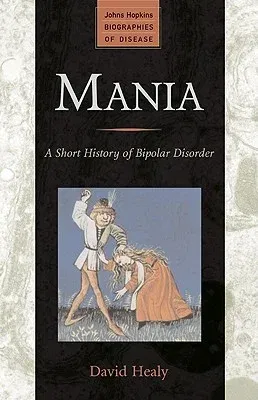David Healy
(Author)Mania: A Short History of Bipolar DisorderPaperback, 1 August 2011

Qty
1
Turbo
Ships in 2 - 3 days
In Stock
Free Delivery
Cash on Delivery
15 Days
Free Returns
Secure Checkout

Reading Age
Ages: 18
Grade Levels
13
Part of Series
Johns Hopkins Biographies of Disease
Print Length
320 pages
Language
English
Publisher
Johns Hopkins University Press
Date Published
1 Aug 2011
ISBN-10
1421403978
ISBN-13
9781421403977
Description
Product Details
Audience:
Ages: 18
Author:
Book Format:
Paperback
Country of Origin:
US
Date Published:
1 August 2011
Dimensions:
22.17 x
13.94 x
2.31 cm
Educational Level:
Grade Levels: 13
ISBN-10:
1421403978
ISBN-13:
9781421403977
Language:
English
Location:
Baltimore
Pages:
320
Publisher:
Weight:
390.09 gm